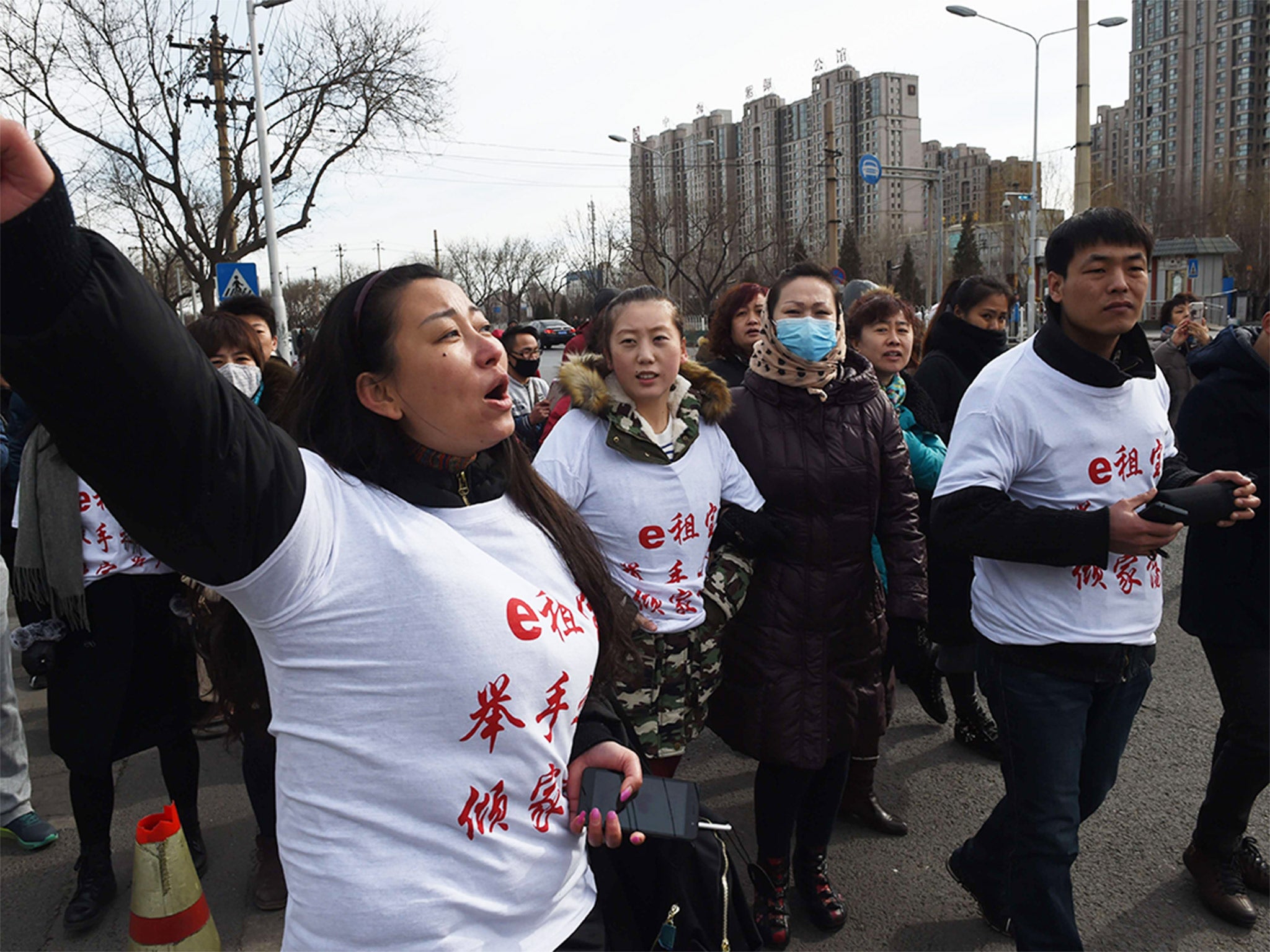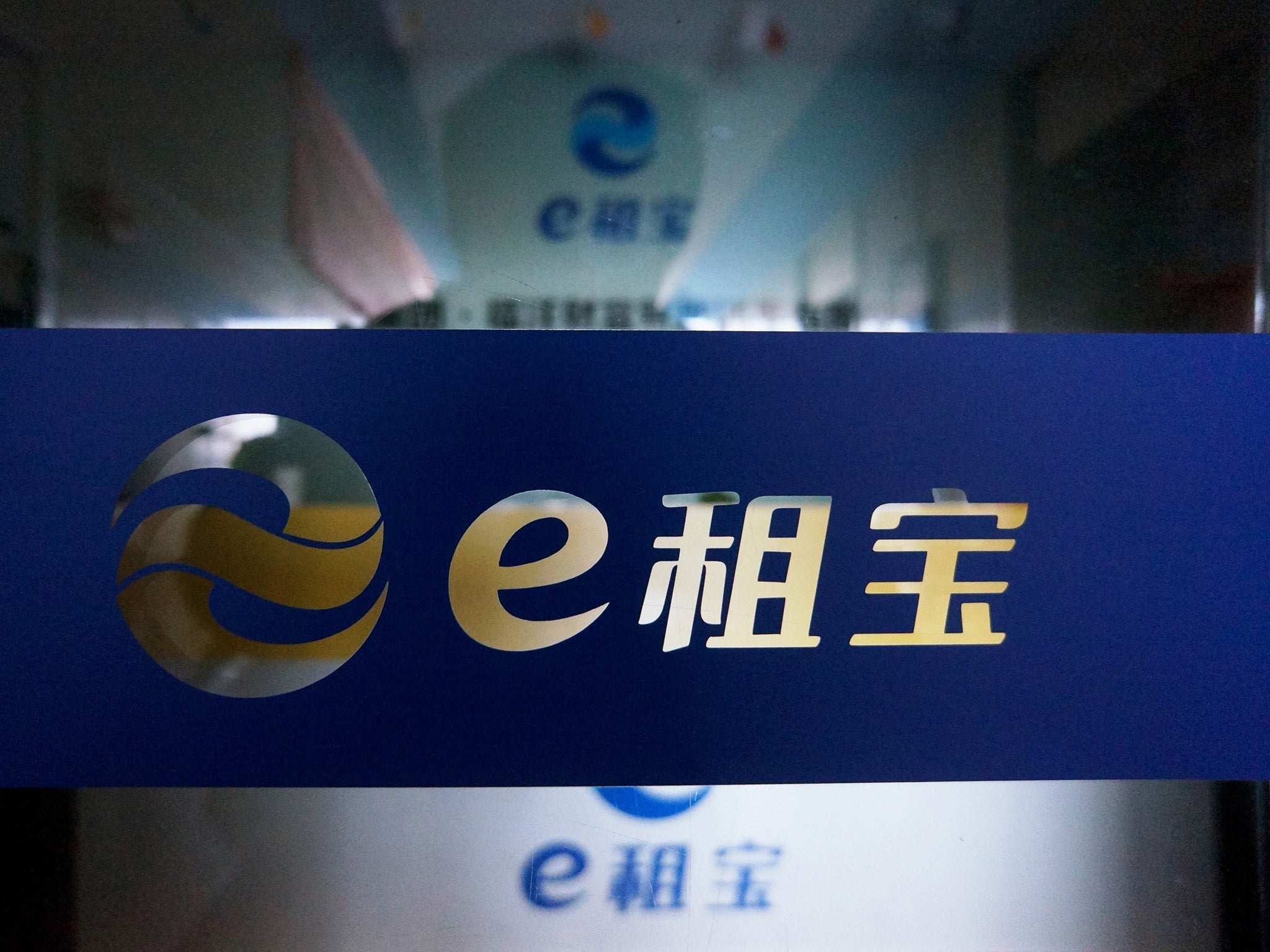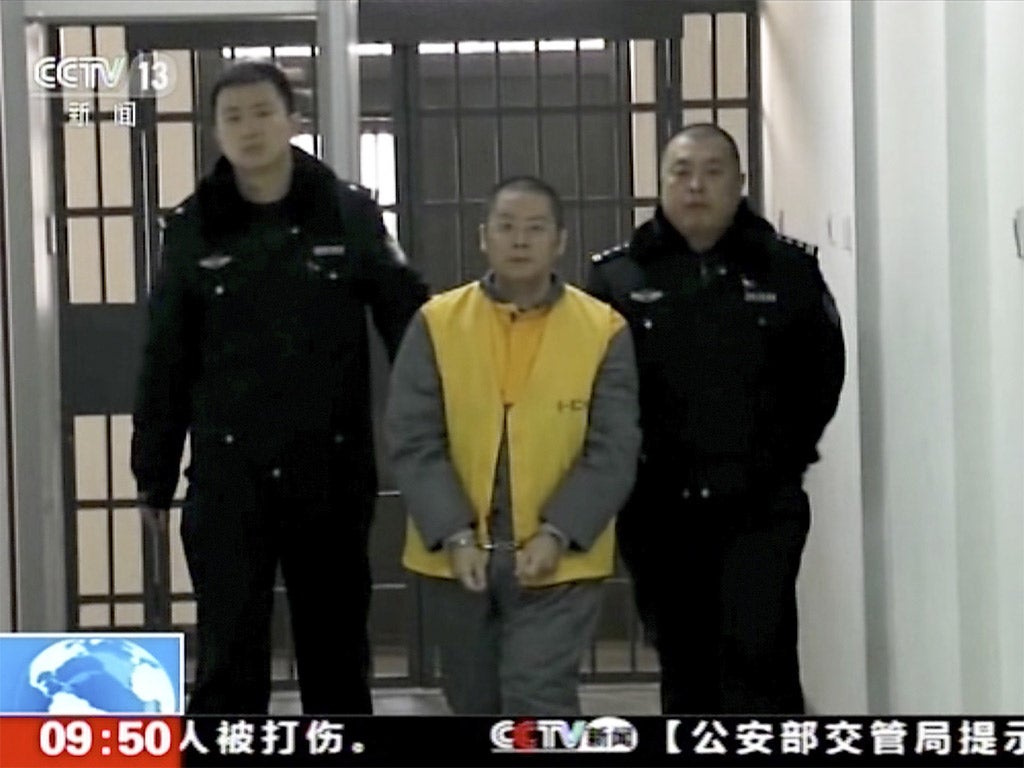Ezubo scam: Popular online peer-to-peer lender leaves 900,000 Chinese investors £5.2m out of pocket
The company, which appeared to be endorsed by the state, has been revealed as a Ponzi scheme being billed as China’s largest-ever online scam. Emily Rauhala reports from Beijing on who is to blame

Your support helps us to tell the story
From reproductive rights to climate change to Big Tech, The Independent is on the ground when the story is developing. Whether it's investigating the financials of Elon Musk's pro-Trump PAC or producing our latest documentary, 'The A Word', which shines a light on the American women fighting for reproductive rights, we know how important it is to parse out the facts from the messaging.
At such a critical moment in US history, we need reporters on the ground. Your donation allows us to keep sending journalists to speak to both sides of the story.
The Independent is trusted by Americans across the entire political spectrum. And unlike many other quality news outlets, we choose not to lock Americans out of our reporting and analysis with paywalls. We believe quality journalism should be available to everyone, paid for by those who can afford it.
Your support makes all the difference.Kang Weiwei considers herself cautious. When China’s stock market took off, she stood on the sidelines and steered clear of financial products that she couldn’t really understand.
But the 32-year-old Beijinger needed somewhere to park the £52,000 that her family received from selling a flat under a government relocation programme. What, she wondered, could beat inflation but still keep their money safe?
The answer came just before the main evening news. An advertisement on Chinese state television, CCTV, touted a peer-to-peer lending company, Ezubo, which said it matched borrowers and lenders online, potentially making credit available to more people and businesses.
The firm advertised on state bullet trains, and its executives schmoozed with state media big shots and Communist Party cadres. But it was the spot on CCTV’s nightly newscast that convinced Ms Kang. “The government is behind it,” she thought. Ms Kang is now one of 900,000 investors caught up in what is being billed as China’s largest-ever online scam, a scandal that has robbed them of the equivalent of £5.2m and renewed questions about the role played by the state in the country’s markets.
After shutting down the firm in December, Chinese authorities this week went public with the results of their rapid-fire investigation.

In televised “confessions” broadcast on CCTV, the company’s top executives admitted that up to 95 per cent of what they sold was fake.
“Ezubo was nothing but a Ponzi scheme,” said Zhang Min, a top executive. State media reports focused on the greed of Ezubo’s executives, noting their over-the-top salaries, their love of luxury goods and their bold attempt to bury evidence, concealing a reported 1,200 documents and other pieces of evidence in a pit 20 feet underground.Not mentioned in the news coverage, however, was how the Chinese state that seemed eager to promote companies such as Ezubo could fail so completely at regulating them, despite a high-profile push to root out corruption.
“I feel duped by the government,” Ms Kang said.

Ezubo was supposed to be among the companies at the vanguard of China’s “new normal”, what the government has called an era of slower, more sustainable growth as the country shifts from a focus on manufacturing and investment to a service economy where innovation is key. Launched in Anhui province in 2014, Ezubo emerged at a time when people needed places to put their money. Property looked shaky, the stock market was wild – and it is tough, and mostly illegal, to move money overseas.
The company looked well placed because it was at the centre of two sectors the state sought to promote: financial technology and the internet. It also appeared to have the blessing of the government.
Though the nature of the ties between Ezubo and Chinese authorities are not clear, company executives certainly cultivated the impression they were “in” – and officials didn’t suggest otherwise. In February 2015, Ezubo hosted its annual meeting at the Great Hall of the People, a government building. The theme was “Financial leasing under a new normal economy” and the host was CCTV star Zhou Tao.
Several investors said they were swayed, in part, by favourable coverage on the network – “the party’s media”, as one 32-year-old investor called it. In September, Ezubo took part in the 12th China-Association of South-east Asian Nations expo, a gathering focused on President Xi Jinping’s “one road, one belt” initiative to build strong economic and political ties with its Asian neighbours.
Events that linked government strategy to Ezubo’s products boosted investor confidence, said Vicky Wu, a 29-year-old who worked for and invested with the firm. “I was raised to believe it’s easier to do business if the authorities have got your back,” he said.
Ezubo was soon doing business across China and even in neighbouring Burma. It also formed a militia, inaugurating the force at an event attended by People’s Liberation Army officials, according to reports in the state-controlled media. “The company had its own militia. How could they do that without government approval?” Ms Kang asked.
Now the firm has been revealed as a fake, investors want to know who is responsible. State television coverage of the excavation of Ezubo’s buried records did not ask how the 21 people in custody either duped or paid off the officials supposed to be keeping them in check.
Chinese regulators either knew about the scam and did nothing, or they completely missed the massive fraud, said Victor Shih, an associate professor at the University of California at San Diego’s School of Global Policy and Strategy. “They had to know,” he said. “And it will happen again.”
Additional reporting by Xu Yangjingjing in Beijing.
© The Washington Post
Join our commenting forum
Join thought-provoking conversations, follow other Independent readers and see their replies
Comments